Custom Modding in Gaming enhances player experiences and shapes esports by enabling unique modifications. Generation Z’s gaming habits—favoring mobile, social gaming, and esports—are driving industry shifts. Esports has gone mainstream, attracting millions of viewers. However, game developers retain copyright control over their titles, limiting community-driven events and potentially undermining consumer trust.
Key Takeaways Custom Modding in Gaming
- Custom modding allows players to personalize and enhance their gaming experiences, leading to greater engagement and innovation.
- Generation Z’s gaming habits, including a preference for mobile devices and esports, are driving significant changes in the industry.
- Esports has become a mainstream phenomenon, with millions of viewers tuning in to live events and tournaments.
- Game developers’ use of copyright authority can deprive gaming communities of valuable events and fail to protect consumer trust.
- The relationship between custom modding, gaming technology, and esports is complex and evolving, with both opportunities and challenges.
Introduction
The gaming industry has been a rapidly growing market for many years, and as technology advances, it only continues to grow. Generation Z, which is made up of digital natives, is driving a significant amount of growth in the gaming industry. Mobile gaming has become a dominant force in the gaming industry due to Gen Z’s preference for mobile devices, which are more affordable and accessible than traditional gaming consoles. Social gaming has also become the new normal, with many games incorporating social features that allow players to connect and compete with each other. Esports, or competitive gaming, has become a mainstream phenomenon, with professional esports players becoming household names.
The Rise of Gaming and Esports
The gaming industry has been a rapidly growing market for many years, and as technology advances, it only continues to grow. Generation Z, which is made up of digital natives, is driving a significant amount of growth in the gaming industry. Mobile gaming has become a dominant force in the gaming industry due to Gen Z’s preference for mobile devices, which are more affordable and accessible than traditional gaming consoles. Social gaming has also become the new normal, with many games incorporating social features that allow players to connect and compete with each other. Esports, or competitive gaming, has become a mainstream phenomenon, with professional esports players becoming household names.
Custom Modding: A Game-Changer
Custom modding in gaming allows players to personalize and enhance their gaming experiences. This includes creating custom levels, game mods, and other modifications that can significantly impact the gameplay. Custom modding has been a part of the gaming industry for many years, and it has played a crucial role in shaping the industry’s evolution. Custom modding has led to the creation of entire communities of creators and players who build and share content, fostering creativity and innovation in the gaming industry.
What is Custom Modding?
Custom modding, or computer game modification, refers to the process of modifying a video game to change its visual or gameplay elements. This can include creating custom player skins, altering the appearance of characters and avatars, or even developing entirely new games based on the original game’s underlying software. Custom modding has been a popular practice among gamers for decades, with examples ranging from making simple aesthetic changes to creating complex, standalone games. Some well-known examples of successful custom modding projects include the creation of DotA from the Warcraft III game engine, and the development of various mods for games like Grand Theft Auto, Skyrim, and Minecraft.
Types of Modding
There are several types of custom modding that gamers can engage in, each with its own level of complexity and impact on the original game. These include:
- Aesthetic modifications: Changes to the visual appearance of the game, such as custom character skins or environment textures.
- Gameplay modifications: Alterations to the underlying mechanics and systems of the game, such as adjusting weapon balancing or adding new game modes.
- Technical modifications: Improvements to the game’s performance, stability, or user interface, often through modifications to the game’s code or engine.
- Total conversions: The creation of entirely new games using the original game’s engine and assets as a foundation, resulting in a vastly different gameplay experience.
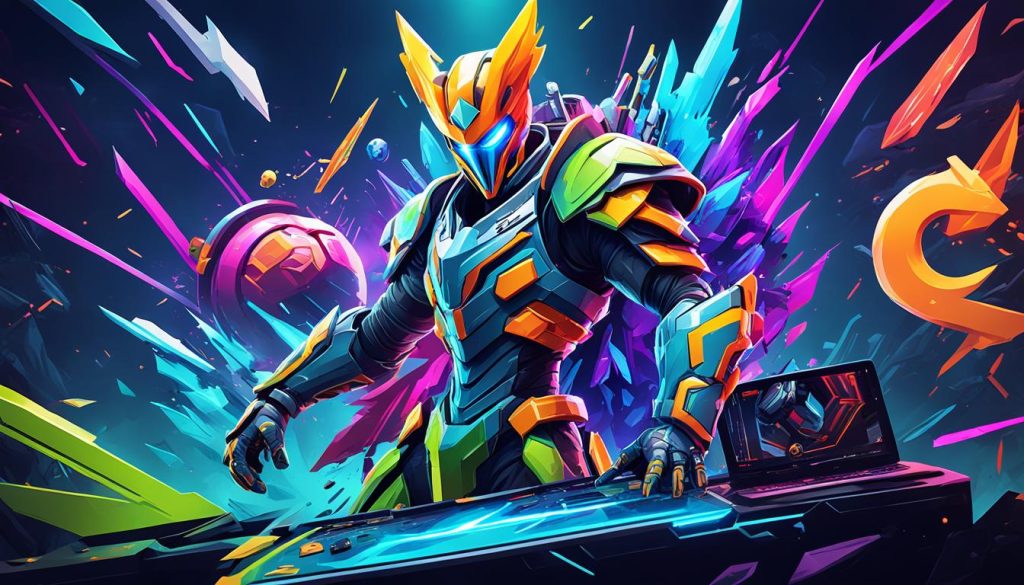
Gaming Technology and Esports
The gaming industry has seen significant technological advancements in recent years, which have greatly impacted the development and experience of video games. Some of these advancements include:
- Virtual reality (VR) and augmented reality (AR) technologies that provide more immersive gaming experiences.
- Improved game engines and rendering technologies that allow for more realistic graphics and larger, more detailed game worlds.
- Advancements in online connectivity and cloud gaming, enabling seamless multiplayer experiences and game streaming.
- Increasingly sophisticated AI and analytics tools that can enhance player performance, personalize gameplay, and improve game design.
These technological innovations have not only improved the quality and accessibility of video games but have also been instrumental in the growth of the esports industry.
The Growth of Esports
The esports industry has experienced remarkable growth in recent years, driven in part by the technological advancements in gaming. Esports, which refers to the organized, competitive play of video games, has become a mainstream phenomenon, with millions of viewers tuning in to watch live tournaments and events. Some key factors contributing to the growth of esports include:
- The rise of live streaming platforms like Twitch and YouTube, which have made it easier for players and viewers to engage with esports content.
- The increasing professionalization of esports, with the development of dedicated leagues, teams, and players earning six-figure salaries.
- The integration of esports into traditional sports and media, with the International Olympic Committee announcing the inclusion of esports competitions in the 2024 Olympic Games.
- The growing popularity of esports among younger generations, particularly Gen Z, who are driving demand for more immersive and socially-connected gaming experiences.
The Impact of Custom Modding on Gaming
Custom modding has had a significant impact on the gaming industry, allowing players to enhance their gameplay experiences in a variety of ways. By creating custom modifications, players can personalize the visual and aesthetic elements of a game, such as character appearances, environments, and user interfaces.
Furthermore, players can tweak and balance gameplay mechanics to their preferences, such as adjusting weapon stats, altering difficulty levels, or introducing new game modes. Additionally, they can improve the technical performance of a game, optimizing it for better frame rates, stability, or user-friendly features. Players can even develop entirely new gameplay experiences by creating total conversions or standalone games based on the original title’s core systems.
Enhancing Gameplay Experiences
These customizations not only improve player satisfaction but also foster a sense of ownership and investment in the gaming experience, leading to deeper engagement and longer-lasting communities.
Fostering Creativity and Innovation
Custom modding has also played a crucial role in fostering creativity and innovation within the gaming industry. By empowering players to modify and create new content, custom modding has encouraged the development of vibrant modding communities, where creators collaborate, share knowledge, and push the boundaries of what’s possible within a game.
Moreover, custom modding has served as a training ground for aspiring game developers, allowing them to hone their skills and experiment with new ideas before potentially entering the industry. This, in turn, has inspired game developers to incorporate more robust modding tools and support into their games, recognizing the value that custom content can bring to the overall experience.
The symbiotic relationship between players and developers has been a key driver of innovation and creativity in the gaming industry, shaping the evolution of both individual titles and the medium as a whole.
Custom Modding and Esports
The impact of custom modding extends into the realm of esports, where it has played a significant role in shaping the competitive gaming landscape. Some of the ways custom modding has influenced esports include:
- The development of mods specifically designed for competitive play, such as balance adjustments, new game modes, or tournament-focused features.
- The creation of entirely new esports titles that originated as custom mods, like DotA and Counter-Strike, which have since become some of the most popular and lucrative esports games.
- The use of custom modifications by professional players and teams to gain a competitive edge, often resulting in ongoing discussions around the ethics and legality of such practices.
- The inclusion of custom modding tools and support by game developers, recognizing the value that player-created content can bring to the esports experience.
However, the relationship between custom modding and esports is not without its challenges, as game developers often seek to maintain control over their intellectual property and the competitive ecosystem surrounding their titles.
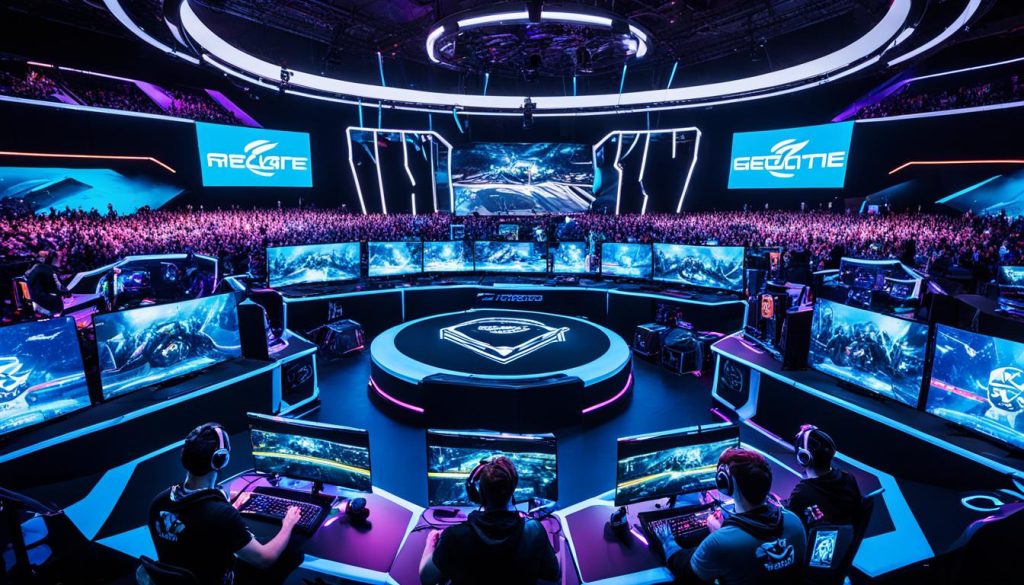
Legal and Ethical Considerations
The use of custom modding in gaming and esports raises several legal and ethical considerations, particularly around the issue of intellectual property rights. Game developers, as the copyright owners of the video games they create, possess a significant degree of control over how their games are used, including in the context of competitive play and tournament organization.
Intellectual Property Rights
This has led to instances where developers have sought to restrict or even prevent third-party tournaments that utilize their games, citing their copyright authority. However, the extent of developers’ intellectual property rights in this regard is not entirely clear, as there is a lack of direct legal precedent addressing the specific challenges posed by the esports industry. Developers’ attempts to exert control over third-party tournaments have been met with criticism from the gaming community, who argue that such restrictions deprive players and fans of valuable esports events and opportunities.
Fair Use and Modding
Another legal consideration surrounding custom modding is the issue of fair use, which allows for the limited use of copyrighted material without the need for permission or licensing. While the creation of custom mods may involve the use of copyrighted assets or code from the original game, the legality of these modifications often falls into a gray area. In some cases, the development of total conversions or standalone games based on an existing title may be deemed as transformative enough to qualify as fair use, while in other instances, the use of copyrighted material without permission could be considered infringement.
The legal landscape surrounding custom modding and fair use remains complex, with developers, modders, and the courts often grappling with the nuances of how copyright law applies in the rapidly evolving world of video games and esports.
The Future of Custom Modding
As the gaming industry and esports ecosystem continue to evolve, we can expect to see several emerging trends and technologies that will shape the future of custom modding:
Emerging Trends and Technologies
– Advancements in game development tools and engines that make it easier for players to create and distribute their own mods and modifications.
– The integration of blockchain and cryptocurrency technologies, which could enable new models for monetizing and incentivizing custom content creation.
– The rise of cloud gaming and game streaming services, which may introduce new challenges and opportunities for how custom mods are deployed and experienced.
– Increased adoption of virtual and augmented reality technologies, which could inspire new types of immersive, player-created gaming experiences.
– Continued growth and professionalization of the esports industry, which may drive more collaboration between developers and the modding community to enhance the competitive landscape.
Challenges and Opportunities
While the future of custom modding holds exciting possibilities, it also presents several challenges that will need to be navigated:
- Ongoing legal and intellectual property disputes between developers and the modding community.
- Maintaining the balance between developer control and player creativity as games become more technically complex.
- Ensuring the fairness and integrity of esports competitions in the face of custom modifications.
- Providing adequate support and resources to the modding community to foster continued innovation.
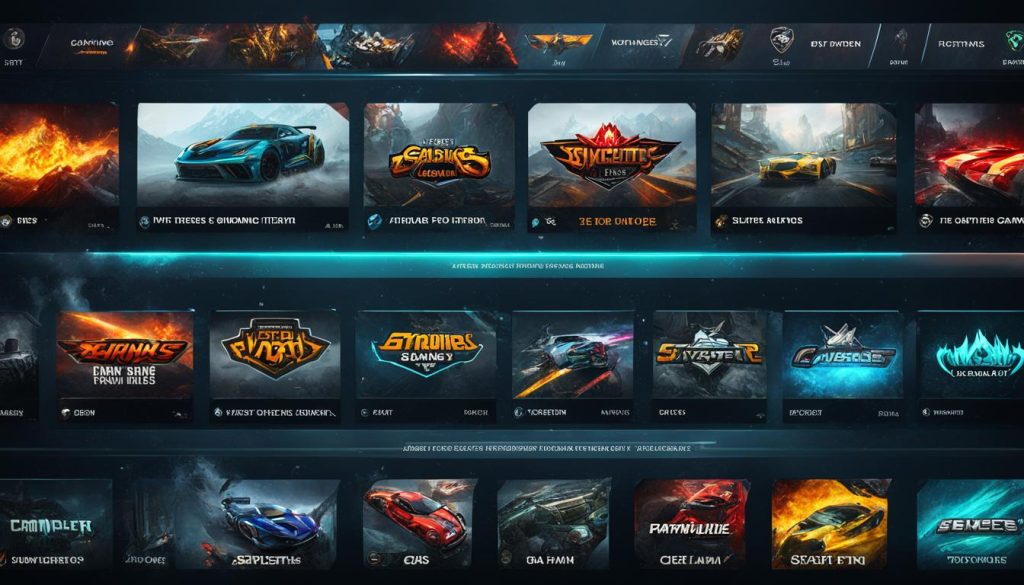
Community Engagement
Custom modding in gaming has given rise to vibrant communities of creators and enthusiasts who collaborate, share knowledge, and push the boundaries of what’s possible within their favorite games. These modding communities play a crucial role in the gaming ecosystem, as they:
- Provide a platform for aspiring game developers to hone their skills and experiment with new ideas.
- Foster a sense of ownership and investment in the gaming experience, leading to deeper player engagement and loyalty.
- Inspire innovation and creativity by challenging the limitations of existing games and pushing the boundaries of what’s possible.
- Serve as a valuable resource for other modders, offering tutorials, tools, and support to help grow the community.
- Maintain the longevity of classic games by continuing to create new content and mods long after the original developer has moved on.
Collaboration and Knowledge Sharing
The success of custom modding communities is often rooted in the collaborative nature of their members, who freely share knowledge, resources, and ideas. This spirit of cooperation has led to:
- The development of robust modding toolkits and frameworks that make it easier for newcomers to get started.
- The creation of online forums, tutorials, and documentation that help educate and empower the modding community.
- Collaborative efforts to tackle complex technical challenges, leveraging the collective expertise of the community.
- The emergence of modding “superstars” who share their knowledge and mentor aspiring modders, helping to grow the next generation of creators.
This culture of collaboration and knowledge sharing has been a driving force behind the continued evolution and innovation in the world of custom modding, benefiting both players and the gaming industry as a whole.
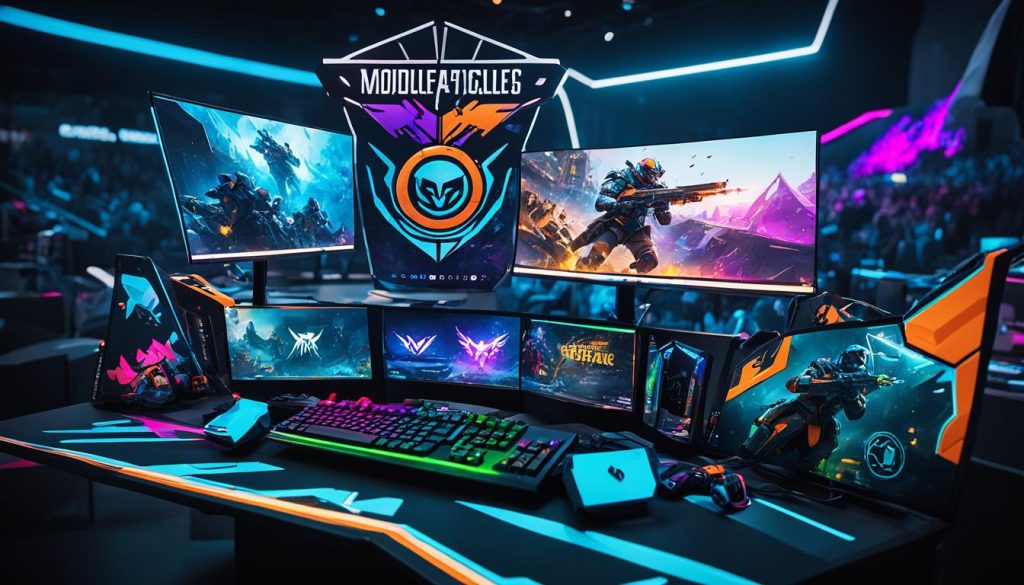
Case Studies
The gaming industry has seen numerous examples of successful modding projects that have had a significant impact on the industry. Some notable case studies include:
Successful Modding Projects
- DotA (Defense of the Ancients): Originally a custom mod for Warcraft III, DotA went on to become one of the most influential and successful esports titles, spawning the entire multiplayer online battle arena (MOBA) genre.
- Counter-Strike: This iconic tactical shooter started as a mod for Half-Life before being acquired by Valve and becoming one of the most popular and enduring esports games.
- Minecraft Mods: The open-ended nature of Minecraft has led to the creation of countless mods that have expanded the game’s functionality, gameplay, and visual appeal, contributing to its longevity and continued popularity.
- Grand Theft Auto Mods: The Grand Theft Auto series has a rich history of custom modifications, ranging from simple visual changes to total conversions that have attracted dedicated player communities.
Lessons Learned
The success stories of these and other modding projects offer valuable insights into the potential of custom modding and the factors that contribute to their longevity and impact:
- The importance of a supportive and engaged community of creators and players.
- The need for developers to recognize the value of custom content and provide robust modding tools and support.
- The potential for mods to inspire new game genres and shape the trajectory of the industry.
- The challenges of navigating intellectual property rights and balancing developer control with player creativity.
- The ongoing need to ensure fairness and integrity within the competitive esports landscape, particularly as it relates to custom modifications.
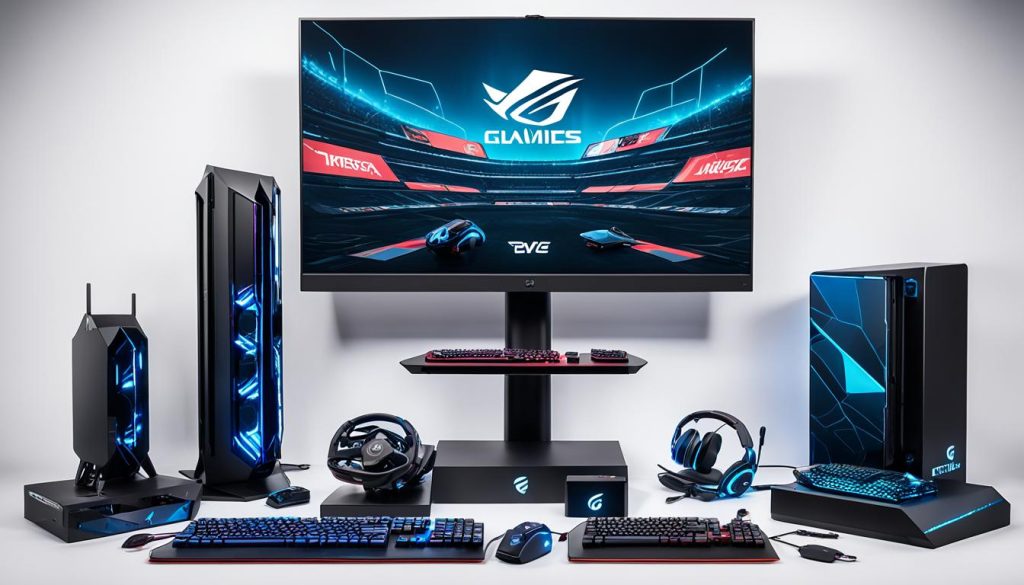
Best Practices
Guidelines for Developers
As the gaming industry continues to grapple with the legal and ethical considerations surrounding custom modding, game developers can adopt best practices to better navigate this complex landscape. We recommend developers provide clear and transparent guidelines for what types of modifications are permitted and how they can be utilized, especially in the context of esports. Additionally, collaborating with the modding community to develop robust toolkits and resources that empower players to create content while respecting intellectual property rights is crucial. Exploring alternative revenue models and partnership opportunities that allow developers to capitalize on the value of custom content while still fostering a thriving modding ecosystem is another essential practice.
Establishing fair and balanced systems for approving and incorporating community-created mods into official game updates or esports competitions is key. Maintaining open communication and engagement with the modding community to address concerns, address challenges, and foster a mutually beneficial relationship is also recommended.
Tips for Modders
For the modding community, there are also best practices and tips that can help navigate the legal and ethical landscape. Modders should familiarize themselves with the intellectual property rights and terms of service associated with the games they wish to mod, ensuring they operate within the bounds of fair use and developer guidelines. Engaging with game developers and esports organizers to explore partnership opportunities and integrate custom mods into official competitive ecosystems is another important step.
Prioritizing the creation of content that enhances the overall player experience rather than solely focusing on gaining a competitive advantage is crucial. Fostering a culture of transparency, collaboration, and knowledge-sharing within the modding community to elevate the quality and integrity of custom content is essential. Additionally, staying informed on evolving legal precedents and industry trends that may impact the rights and protections afforded to modders is highly recommended.
Conclusion Custom Modding in Gaming
As the gaming industry and the esports ecosystem continue to evolve, custom modding remains a powerful force that shapes the future of interactive entertainment. We have witnessed how custom modding empowers players to personalize their experiences, foster creativity, and push the boundaries of what’s possible within their favorite games.
The symbiotic relationship between game developers, the modding community, and the world of esports has been a driving force behind many of the industry’s most transformative innovations. By embracing the value of player-created content and providing robust modding tools and support, developers have fostered an environment where creativity and innovation can thrive.
Looking ahead, we can expect to see the continued integration of emerging technologies, such as blockchain, cloud gaming, and immersive VR/AR experiences, further enhancing the possibilities for custom modding. However, navigating the legal and ethical considerations surrounding intellectual property rights and the integrity of competitive play will remain a crucial challenge that the industry must address collaboratively.
As we contemplate the future of gaming and esports, it’s clear that custom modding will continue to play a pivotal role in shaping the experiences, communities, and innovations that define this dynamic and ever-evolving landscape. By embracing the power of player creativity and fostering a spirit of collaboration, we can unlock new frontiers of what’s possible in the world of interactive entertainment.
FAQ
What is custom modding in gaming?
Custom modding, or computer game modification, refers to the process of modifying a video game to change its visual or gameplay elements. This can include creating custom player skins, altering the appearance of characters and avatars, or even developing entirely new games based on the original game’s underlying software.
What are the different types of custom modding?
The main types of custom modding include aesthetic modifications, gameplay modifications, technical modifications, and total conversions. Aesthetic modifications change the visual appearance, gameplay modifications alter the mechanics and systems, technical modifications improve performance and stability, and total conversions create entirely new games using the original game’s engine and assets.
How has custom modding impacted the gaming industry?
Custom modding has had a significant impact on the gaming industry, allowing players to personalize their gameplay experiences, foster creativity and innovation, and shape the evolution of both individual titles and the medium as a whole. Modding communities have played a crucial role in pushing the boundaries of what’s possible within games, inspiring game developers to provide more robust modding tools and support.
What is the relationship between custom modding and esports?
Custom modding has had a significant influence on the esports industry, with the development of mods specifically designed for competitive play, the creation of entirely new esports titles that originated as custom mods, and the use of custom modifications by professional players and teams. However, this relationship has also raised legal and ethical considerations around intellectual property rights and the balance between developer control and player creativity.
What are the legal and ethical considerations surrounding custom modding?
The use of custom modding in gaming and esports raises several legal and ethical considerations, particularly around the issue of intellectual property rights. Game developers, as the copyright owners of the video games they create, possess a significant degree of control over how their games are used, including in the context of competitive play and tournament organization. This has led to instances where developers have sought to restrict or even prevent third-party tournaments that utilize their games, citing their copyright authority.
What are the emerging trends and technologies shaping the future of custom modding?
Some of the emerging trends and technologies that are expected to shape the future of custom modding include advancements in game development tools and engines, the integration of blockchain and cryptocurrency technologies, the rise of cloud gaming and game streaming services, increased adoption of virtual and augmented reality technologies, and continued growth and professionalization of the esports industry. However, these developments also present challenges, such as maintaining the balance between developer control and player creativity, ensuring fairness and integrity in esports competitions, and navigating the evolving legal landscape.
How do modding communities contribute to the gaming industry?
Modding communities play a crucial role in the gaming ecosystem, providing a platform for aspiring game developers to hone their skills, fostering a sense of ownership and investment in the gaming experience, inspiring innovation and creativity, and maintaining the longevity of classic games. These communities thrive on a culture of collaboration and knowledge-sharing, which has led to the development of robust modding toolkits and frameworks, online forums, tutorials, and the emergence of modding “superstars” who mentor aspiring creators.
What are some examples of successful modding projects?
Some notable examples of successful modding projects include the creation of DotA (Defense of the Ancients) from the Warcraft III game engine, the development of the iconic tactical shooter Counter-Strike as a Half-Life mod, the countless mods that have expanded the functionality and appeal of Minecraft, and the rich history of custom modifications in the Grand Theft Auto series. These success stories offer valuable insights into the potential of custom modding and the factors that contribute to their longevity and impact.
What are the best practices for game developers and modders to navigate the legal and ethical landscape?
For game developers, best practices include providing clear and transparent guidelines for permitted modifications, collaborating with the modding community to develop robust toolkits and resources, exploring alternative revenue models and partnership opportunities, establishing fair and balanced systems for approving and incorporating community-created mods, and maintaining open communication with the modding community. For modders, best practices include familiarizing themselves with intellectual property rights and terms of service, engaging with game developers and esports organizers, prioritizing content that enhances the player experience, fostering a culture of transparency and collaboration, and staying informed on evolving legal precedents and industry trends.
Source Links
- https://www.kashishworld.com/blog/the-interplay-of-intellectual-property-and-esports-the-game-is-on/
- https://timesofindia.indiatimes.com/blogs/voices/how-gen-z-is-reshaping-the-gaming-industry/
- https://scholarship.law.vanderbilt.edu/cgi/viewcontent.cgi?article=1568&context=jetlaw
